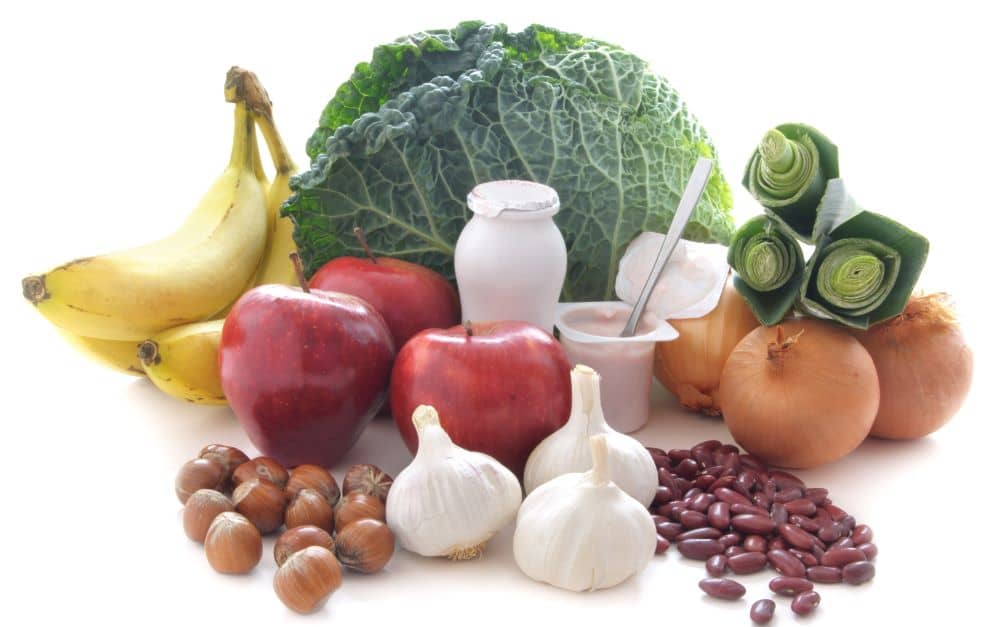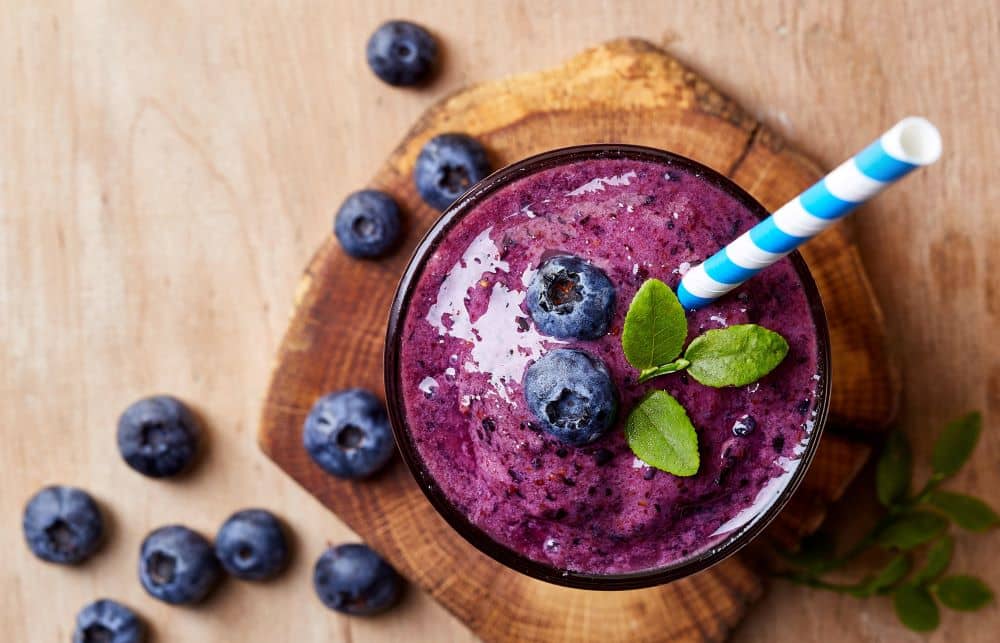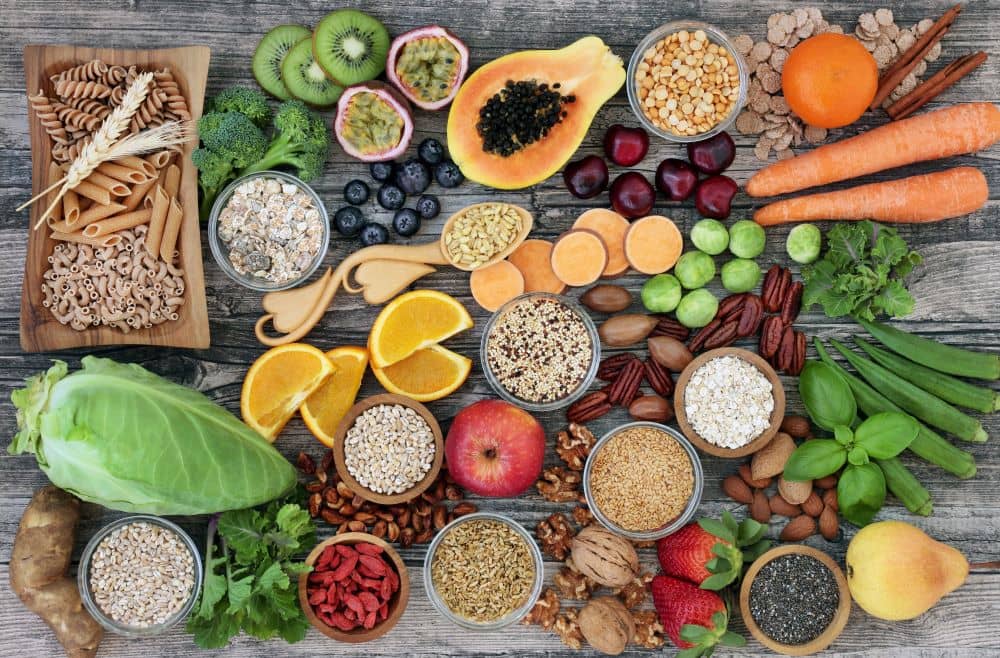10 Proven Health Benefits of Eating More Fiber
Eating more fiber has the potential to deliver a variety of health benefits. Here, we’ll look at the many ways fiber can benefit your health, as well as fiber-rich foods.
What Is Fiber?
Dietary fiber is a certain type of carbohydrate that is non-digestible.
It falls under two categories based on its water solubility:
- Soluble fiber – This type of fiber dissolves in water and can be metabolized by “good” gut bacteria
- Insoluble fiber – This type of fiber does not dissolve in water.
Another way to categorize fiber is whether it is fermentable or non-fermentable, meaning whether or not the friendly bacteria in the gut can use it or not. Most foods contain both soluble and insoluble fibers.
How Much Fiber Should I Eat Each Day?
The USDA recommends an intake of 25 grams of fiber per day for women and 38 grams of fiber per day for men. If you do not currently consume enough fiber to reach the daily recommendation, your fiber intake should be increased slowly to avoid gastrointestinal discomfort.
It is also recommended to consume an adequate intake of water to help fiber move along the GI tract.
Is It Possible to Eat Too Much Fiber?
Yes, too much fiber may interfere with the absorption of certain medications or minerals. Switching from low fiber intake to high fiber intake too suddenly can also result in symptoms such as bloating or cramps.
10 Reasons To Eat More Fiber
1. Fiber May Help You Lose Weight
When consumed, fiber swells like a sponge in the stomach, promoting feelings of fullness and slowing nutrient absorption. This can help satiate hunger and create a caloric deficit that leads to weight loss.
Fiber also binds with sugar and fat molecules as they travel through the digestive tract, limiting the number of calories you get.
2. Fiber Can Help You Maintain a Healthy Weight
Along with helping you lose weight in the first place, consuming enough fiber can also help you maintain a healthy weight.
According to a study at the Medical University of South Carolina, individuals who ate more fiber tended to be leaner overall than obese participants who ate almost 1 gram less of fiber per day on average than normal-weight participants.
3. Fiber Can Support Your Overall Health
Studies show that consuming adequate amounts of fiber can support your overall health and prevent a variety of health conditions. Researchers believe this is due to fiber’s ability to keep blood sugar levels stabilized and help support a healthy weight.
4. Fiber May Support Healthy Gut Bacteria
The good bacteria that make up your microbiome feed off of fiber. As these gut bacteria feed off of fermented fiber in the G.I. tract, they produce short-chain fatty acids that provide a variety of health benefits.
To reap the benefits, it is important to consistently get enough fiber each day.
5. Fiber Can Reduce Inflammation
Fiber is prebiotic, making it important for overall health and reducing inflammation. An American Journal of Clinical Nutrition study explains that fiber acts as a natural defense against C-reactive protein, a key indicator of acute inflammation.
To further reduce inflammation, check out our list of the best anti-inflammatory foods, many of which are naturally high in fiber.
6. Fiber Can Help Naturally Increase Your Energy Levels
Do you always turn to coffee when you need a boost of energy? It turns out a high fiber diet can help keep you alert too, all without the dreaded crash that sometimes comes with caffeine consumption.
Consuming snacks that contain a mix of fiber and protein, such as nuts, can help keep blood sugar levels steady and provide sustained energy.
7. Fiber Can Help You Burn More Calories Without Trying
If you like the thought of burning extra calories without trying, look no further than fiber for help! Even without extra time at the gym, fiber can help you burn calories.
Recent research published in the American Journal of Clinical Nutrition found that doubling fiber intake from 12 to 24 grams per day resulted in burning almost 100 extra calories a day in participants.
This is believed to be due to the metabolism boost fiber provides since the body burns calories in an attempt to digest it. Those extra calories burned can result in several pounds of weight loss over a year.
8. Fiber Increases Regularity
Another possible health benefit of adequate fiber intake is increased regularity. Fiber is believed to help absorb water, speed up the movement of stool through the intestines, and increase the bulk of stool.
The type of fiber consumed plays a role in regularity. Soluble fibers such as psyllium that are not fermented by gut bacteria and form a gel-like substance are often effective.
Other types of fiber, such as the sorbitol found in prunes, affect stools by drawing water into the colon.
9. Fiber Supports All-Natural Detoxing and Cleansing
Feel like you need a natural to cleanse? Fiber to the rescue! Fiber naturally acts as a cleanse for your G.I. tract by assisting in the elimination of toxins by soaking up potentially harmful compounds before the body can absorb them.
Because it also helps things move quicker through the digestive system, fiber limits the amount of time certain chemicals stay in the body. The faster they go through, the less time they have to cause harm.
10. Fiber Supports Strong Bones
Some types of soluble fiber found in oats, wheat, soybeans, asparagus, and leeks have been shown to help increase calcium’s bioavailability. This may help maintain bone density.
What Are The Best High-Fiber Foods?
Need a little inspiration for adding more fiber to your diet? Here is a list of delicious foods that are high in fiber:
- Pears
- Carrots
- Apples
- Raspberries
- Strawberries
- Avocados
- Broccoli
- Beets
- Brussel sprouts
- Artichokes
- Kidney beans
- Lentils
- Ready-made high fiber snacks
- Split peas
- Chickpeas
- Black beans
- Lima beans
- Baked beans
- Steel-cut oats
- Quinoa
- Almonds
- Popcorn
- Chia seeds
- Pistachios
- Walnuts
- Asparagus
- Leeks
- Sunflower seeds
- Pumpkin seeds
- Sweet potatoes
- Dark chocolate
- Blueberries
- Blackberries
- Kale
- Whole grain bread, rice, and pasta
- Spinach
Tips For Eating More Fiber
Additional tips to help you eat more fiber include:
- Opt for whole-grain versions of pasta, rice, bread, and baked goods when possible
- Snack on high-fiber foods in-between meals such as fruits, vegetables, nuts, or popcorn
- Make a meatless meal once a week using high-fiber ingredients such as lentils or beans
- Include at least one fruit or vegetable with each meal
- Keep high fiber cereals on hand
- Use high-fiber bread or buns when making sandwiches
- Use whole wheat flour when making bread, muffins, or pizza dough
What Are Your Favorite Fiber-Rich Foods?
From feeding the friendly bacteria in your gut to nourishing the colon wall, dietary fiber has numerous health benefits.
If you are aiming for a healthy lifestyle or a particular weight loss goal, try slowly increasing your fiber intake until you are consuming the recommended amount per day.
What are your favorite high-fiber foods? Did they make our list or do you have additional ideas to add? We always love hearing from you and are here for any questions you have.













